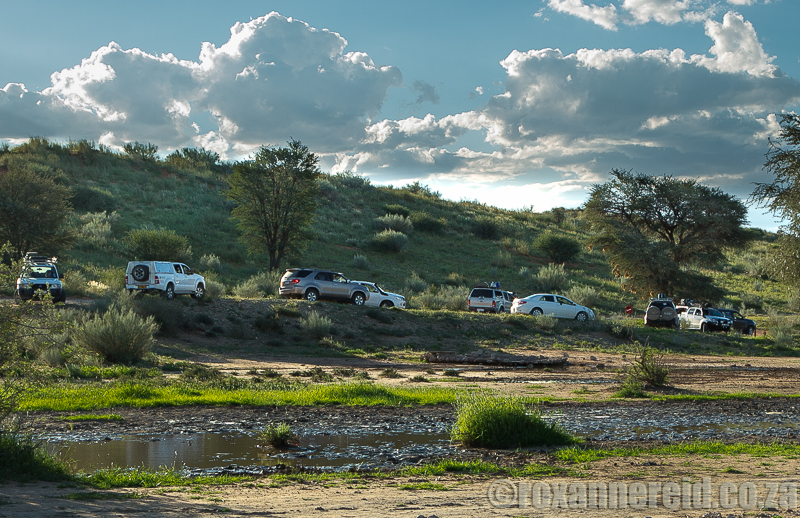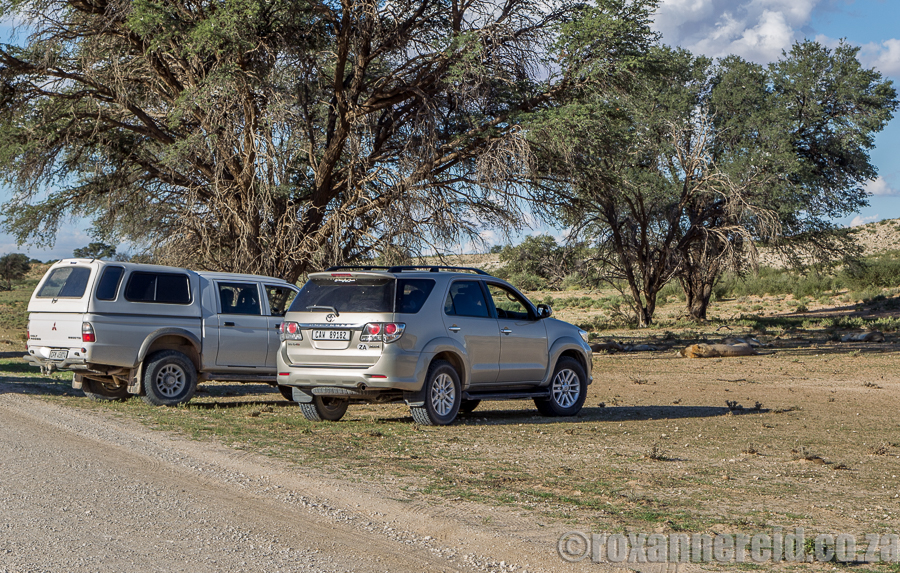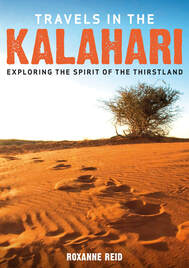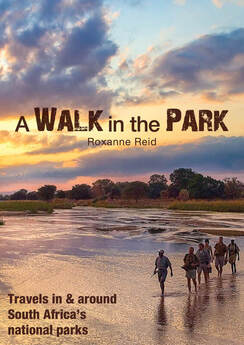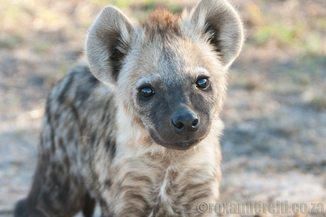
There’s nothing better than being on a game drive in the bush, watching some of Africa’s beautiful wild animals. But humans behaving badly can ruin the experience for everyone. So what are the golden rules of safari etiquette that tell you how to behave on your game drives?
And you’ll have seen numerous cases of human selfishness too – from both general game viewers and from photographers, who sometimes think their needs are more important than anyone else’s. Such selfishness can cause gridlock on the roads at busy sightings or frighten the animals so that they run away – and everyone is the poorer for that.
There’s no reason this should happen. Ever. Here’s why.
The two golden rules are:
- Stop parallel – not diagonally – on the side where the sighting is. This way no one can obstruct your view.
- Keep the lane furthest away from the sighting open for anyone who wants to leave the sighting, or simply pass by altogether.
If we all stuck to these rules we’d live in a game-viewing paradise that was free of gridlock, frustration and temper.
About respect
A recent incident at the Kruger National Park where a safari guide got out of his vehicle at a lion kill to fling abuse at other visitors highlights why attitude is so important. (The guide was later fired – getting out of your vehicle except at a designated place is a punishable offence.)
Although the guide insisted you have to move on and let others have a turn at the sighting, in fact there’s no such rule. Stevens says visitors can stay at a sighting as long as they want – as long as they’re not in the lane furthest from the sighting and therefore blocking the flow of traffic. Nevertheless, he adds that SANParks encourages respect for others by moving on within ‘a reasonable time’ so they can enjoy the sighting too.
That’s an important word, respect. Respect for the animals, respect for the natural environment, respect for our fellow visitors.
Another thorny issue that causes irritation at congested sightings is when photographers get pushy in their quest to get that special wildlife shot. What can they do to make sure they don’t disturb the animals or other visitors?
‘Don’t overstep that boundary between selfishness and respect for nature,’ says Stevens. ‘Try to get the photo without causing stress to the animal.’
Kevin Moore, SANParks Manager: Visitor Management and Interpretation, points out that the same rules that apply to everyone apply to photographers too. ‘They don’t get preferential treatment,’ he says, adding that wildlife photographers worth their salt wait for the ideal shot to come to them.
‘It’s unlikely you’ll get that special shot when there are many vehicles,’ says Dr Freek Venter, GM: Conservation Management. ‘You’ll irritate other visitors if you hog the best spot and keep them from seeing the sighting. Be considerate, take your shot or two and then give others a chance to get closer.’
Keep your distance
Like all visitors, photographers need to remember to keep a safe distance and not hound animals trying to cross the road, just to get a better photo. If an animal is walking in the road, respect its personal space and give it room. What a ‘safe distance’ is varies from species to species and even individual to individual, but good sense and observation will help you here. If you notice the animal looking back at you or reacting to your presence in any way, you’ve already intruded into its personal space so fall back; don’t crowd it until it becomes aggressive or runs away, ruining the sighting for everyone.
It’s something I’ve seen happen a number of times. Recently we were watching a cheetah mom and three grown cubs walking in the road, so we kept our distance for all the reasons I’ve already mentioned. Then a guy with a camera poking out his window overtook us and pulled in ahead, stopping diagonally to get a close-up photo. He achieved two things: he blocked the road entirely so no one else could see anything; and he made the cheetahs bolt for the bushes.
If that guy is you, remember these three words: attitude, respect, consideration. If you stick to the rules and practise a respectful and considerate attitude, then you’ll be able to enjoy the enormous privilege of watching wild animals in their own environment.
And everyone around you will be able to enjoy it too.
Copyright © Roxanne Reid - No words may be used without written permission from roxannereid.co.za
